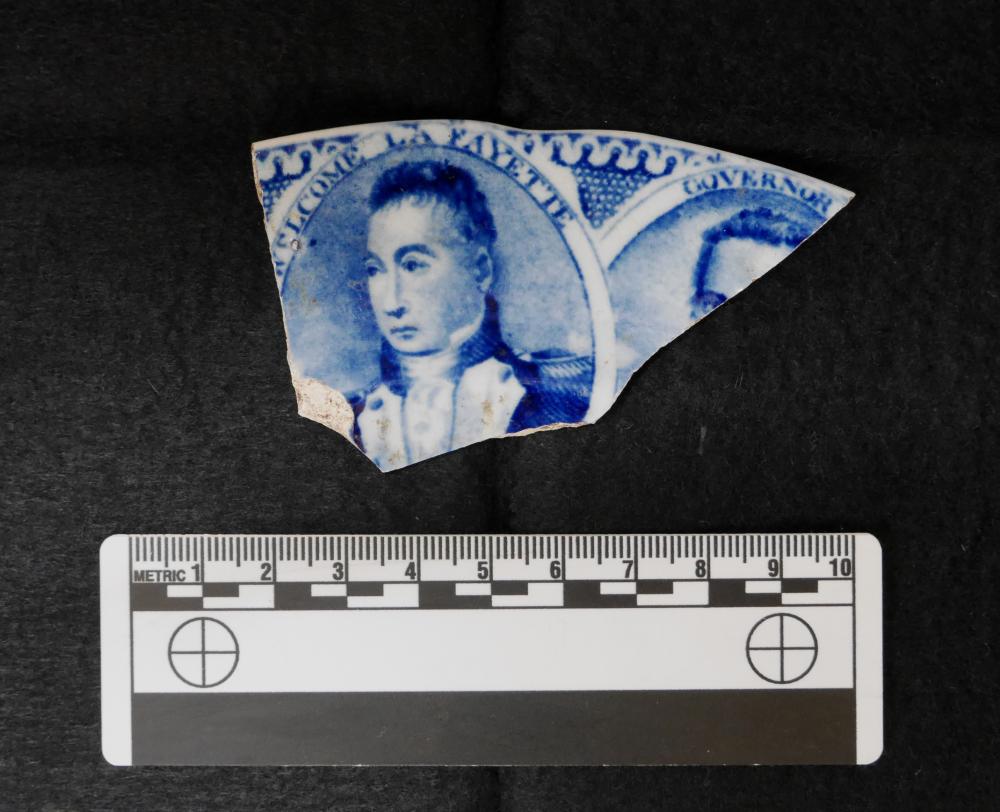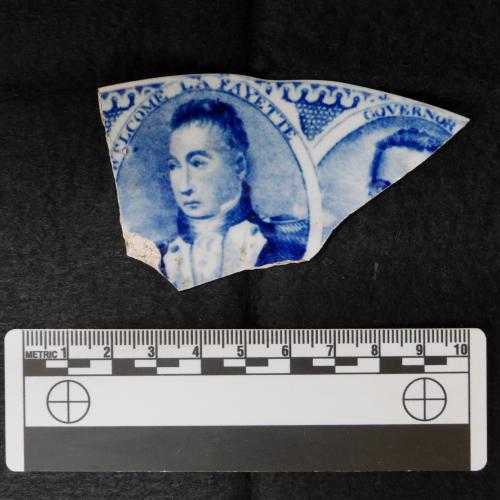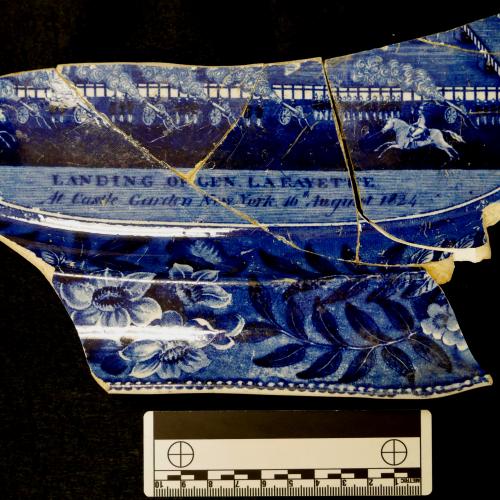Historical archaeology is a multidisciplinary field combining written historical records with archaeological data to study places, objects and issues of the past. In North America, historical archaeology begins with European colonization. One of the issues -- highly relevant to present day North America, in fact -- is politics. Dr. Michael Lucas, Curator of Historical Archaeology, is conducting a study of commemorative ceramic plates recovered from New York archaeological sites decorated with patriotic symbols.
Marquis de Lafayette was a French military general and statesman perhaps best known for his service in the continental army during the American Revolution. Lafayette also figured prominently in the French revolution, the movement to abolish the African Slave trade, and other civil rights causes. His feats in war and social activism won the hearts and minds of many in America and France. Lafayette was particularly revered in the early years of the United States as a hero of the American Revolution.
The semicentennial anniversary of the American independence was celebrated with a year-long tour of the United States by Lafayette. The general was hailed as a hero as he began his tour in New York in 1824. British potters took advantage of this patriotic sentiment in producing commemorative plates for the American market. Collections at the New York State Museum suggest that New Yorker’s had keen appetite for these symbols of the new republic. Pictured are Lafayette plates from Albany and New York City collections dating to the late 1820s. Comparative research is currently underway by Lucas to measure levels of consumption of these patriotic symbols by variables such as class and political engagement.






